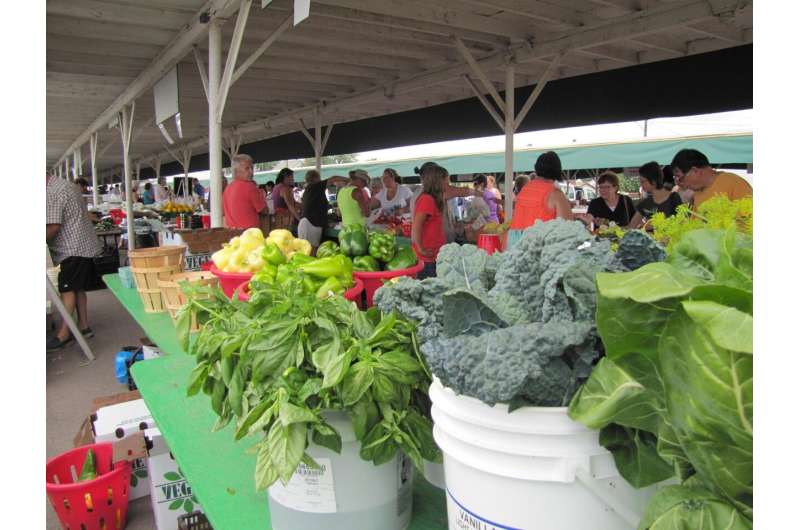
The COVID‐19 pandemic affected American households in countless ways, but according to researchers, some of the most tangible shifts are taking place in the food system.
A combination of supply chain issues, tighter budgets, concern about shopping in public spaces, and increases in at-home preparation has led to a greater interest in sourcing food locally, but the question remains how long that interest will last. A team of researchers from Penn State’s Department of Agricultural Economics, Sociology and Education conducted a study to find out.
Their results, recently published in the journal Agribusiness, indicate the boon to local food producers may be short-lived, especially if consumers are feeling a sense of anxiety.
“During the pandemic, food consumption changed and so did the sourcing of that food,” said Martina Vecchi, assistant professor of agricultural economics at Penn State and lead author on the study. “A lot of people started exploring different ways of purchasing food and we wanted to understand the determining factors in their decisions.”
Using an online survey, the researchers asked 1,650 participants to reflect on the pandemic and their willingness to buy food locally. Their results suggest that thinking about the pandemic increased anxiety, reduced a sense of community belonging, and lowered the price premiums that respondents were willing to pay for local fruits, vegetables and meat.
“The main mechanism that drives the decreased willingness to pay for locally produced food is anxiety,” Vecchi said. “We didn’t expect this, but managing anxiety might be one of the most important things we can do to protect general health were there to be another health crisis.”
The researchers began the survey by inducing or “priming” a subset of participants to think about the impact of the pandemic on either their personal life, finances and health or on their local community and its members. They found that both prompts or “primes” increased participants’ levels of anxiety, slightly reduced their sense of community, and significantly decreased the hypothetical price premium participants were willing to pay for local food.
“We thought of those as the two mechanisms that could influence the willingness to buy this type of product: anxiety and sense of community,” Vecchi said. “We assumed that as people got more anxious because of the pandemic, they would buy more local food because they thought it was safer. We also thought it might strengthen their sense of community and would therefore reflect a higher willingness to pay for local food.”
The results show a trend in the opposite direction. As anxiety increased, sense of community decreased. Vecchi explains that the rise in local food sales during the pandemic may simply be a byproduct of supply chain issues and fears about supermarkets, not a reflection of permanent changes in consumer behavior.
“It doesn’t appear that their actual willingness to invest in local food was higher,” Vecchi said. “Sure, they were paying for local food, just because they felt that was the safest option, but it’s not that their actual willingness to pay for it was higher.”
The researchers explained that while local food outlets received significantly more attention from consumers as a result of the pandemic, those in the local food community should not expect the elevated interest to continue.
“My advice to policymakers and farmers is to try and deal with consumers’ anxiety and their sense of community first,” Vecchi said. “We have to solve for that if we want to sustain a vibrant local food economy.”
In addition to Vecchi, the research team includes Edward Jaenicke and Claudia Schmidt of Penn State’s Department of Agricultural Economics, Sociology and Education.
More information: Martina Vecchi et al, Local food in times of crisis: The impact of COVID‐19 and two reinforcing primes, Agribusiness (2022). DOI: 10.1002/agr.21754
Citation: Local food boon spurred by pandemic may be short-lived, new research reports (2022, September 6) retrieved 9 September 2022 from https://phys.org/news/2022-09-local-food-boon-spurred-pandemic.html
This document is subject to copyright. Apart from any fair dealing for the purpose of private study or research, no part may be reproduced without the written permission. The content is provided for information purposes only.
Note: This article have been indexed to our site. We do not claim legitimacy, ownership or copyright of any of the content above. To see the article at original source Click Here













